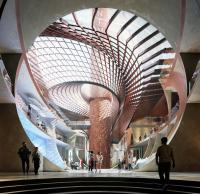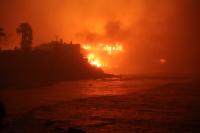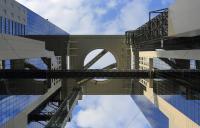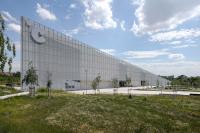Yeoui-Naru Ferry Terminal and Masterplan, Yeoui-Naru, Seoul, South Korea
Seoul, South Korea
Cheungvogl wins the international competition for the Yeoui-Naru Ferry Terminal and Masterplan, Yeoui-Naru, Seoul, South Korea.
Jury:
Ryue Nishizawa, SANAA (Sejima and Nishizawa and Associates)
Alejandro Zaera Polo, AZPML/FOA (Foreign Office Architects)
Professor Choi Moongyu, Yonsei University
Professor Choi JeongKwon, Gachon University
Professor Park SunWoo, Korea National University of Arts
Professor Shim Jaehyeon, Sejong University
The vast beauty with an emphasis on monochrome and flatness is distinctively characteristic to the Han River (Hangang) embankment, a major attraction to local and international visitors to Seoul. After the straightening of the watercourse in the past, the image of the 1.5 kilometre wide and calm Hangang has become one of the main associations with Seoul and its identity. This beauty of vastness and calmness we aim to preserve.
To maintain the distinct horizontality of the scenery, the structures of the development are moved to its periphery to create a transition between urban grain and embankment or become emphatically horizontal themselves. To integrate the Ferry Terminal between waterside and landside into the open and wide setting of the site, the architecture becomes transitional itself. We would like to replace the technical implication of infrastructure with the almost romantic association of journey, in which the building becomes an interpretation of experience. The technical complexity dissolves within the narrative of a poetic pragmatism.
The terminal building forms a thin line on the water, following the river flow. The slight bends of the terminal and the integrated marina are the result of optimization for vessel manoeuvring and water flow, while creating a defined 450 meter long path on the otherwise undefined water surface. The slender ratio of length to width seeks to find a sensitive relationship between people and river beyond the technical nature of an infrastructure project.
The terminal is located furthest possible from the shoreline within the boundaries of the planning zone to emphasize the experience of walking on the Han River. The entire terminal and marina facility is sheltered by a continuous roof. The undulating roof and openings provide varying light qualities and experience of weather conditions along the path on the river.
Respecting the notion of building on water, the terminal is conceived as a lightweight steel-frame structure, creating a light appearance with reduced weight to minimize pontoon size. A metal mesh encloses the periphery of the marina, creating an almost invisible curtain between the pier and the river.
Masterplan
The masterplan connects the development of four projects to the existing infrastructure and public transportation network while maintaining the open character of the embankment by decentralizing the different programs at the periphery of the project site. An elongated area east of Yeoui-Naru Station is planned for the Yeouimaru (Yeoui Terrace), a two-storey culture and community building on raised platform terraces, overlooking the landscape of the riverbank and creating a protective barrier to roads and traffic along the project site.
The Yeouijeong (Pier Deck) is a one-storey open timber structure by the water, facing the ferry terminal and marina facilities. The permeable character of the building maintains views and access to the water, while providing a sheltered area within the park and fields along the embankment. The Pier Deck resembles characteristics of a market hall with cafes and restaurants with flexible open, semi-open and enclosed spaces. The enclosures are proposed as temporary flexible structures, which can adequately respond to future changes as they are simple and cost-effective. The 8,500 sqm rooftop of the Yeouijeong serves as an observation platform, overlooking Hangang and the marina facilities.
The Ari Cultural Centre is located above the open parking space at the south-east corner of Mapo Bridge. The location anchors the development within the urban grain by placing the four-storey structure at the entry point to Yeouido, creating a recognizable visual connection to the Yeouido Park and the financial and government district.
The peripheral decentralisation of the development describes the masterplan as a spatial and programmatic extension to the public realm of the Hangang embankment and Yeouinaru, maintaining free flow of pedestrian and bicycle paths and access to the water. The conservation of the vast open character of the site preserves its distinct identity as well as it serves as a flood management zone. The straightening of the watercourse in the past might have calmed the river, but its force remains and shows in reoccurring floods. With the swelling of the river, the water flow speed decreases. The Yeoui-Naru Ferry Terminal calmly floats on the Hangang, providing safe berth to boats and vessels.
- Parchi + Spazi aperti
- Porti + Terminali marittimi
- Architettura paesaggistica
- Piano regolatore
- Sviluppo urbanistico
- Architetti
- Cheungvogl
- Sede
- Yeouinaru, Seoul, South Korea
- Anno
- 2021
- Cliente
- Seoul Metropolitan Government


















